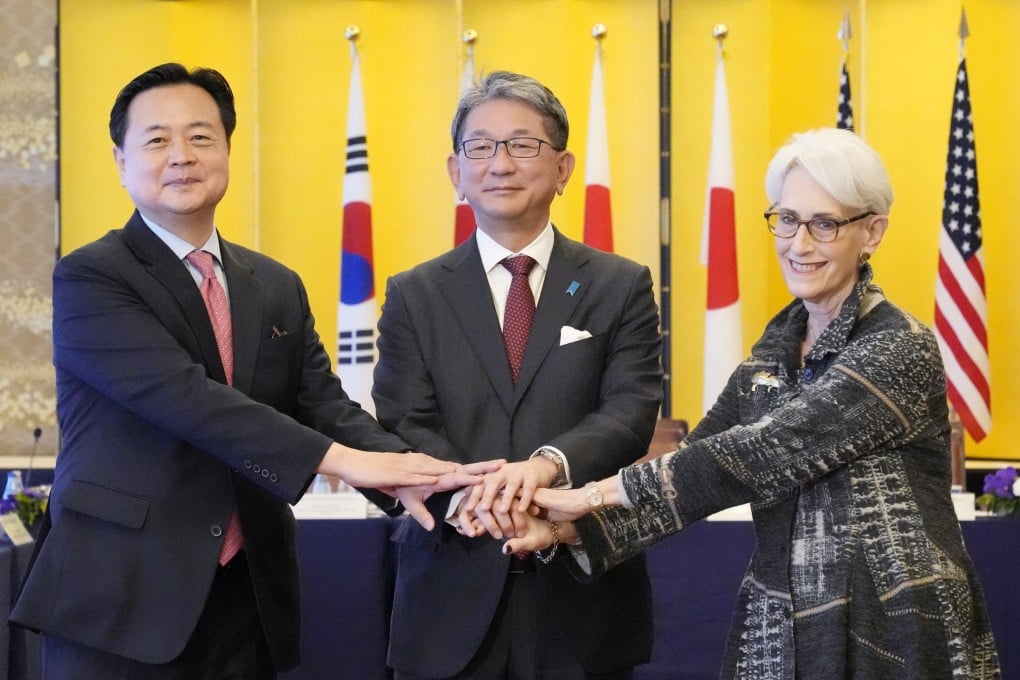Will Japan-South Korea talks yield improved ties as North’s provocations drive them closer?
- The nations should be ‘natural allies’ with their shared challenges in Northeast Asia, and potential mutual benefits in trade, cultural and education, analysts say
- But historical issues hold back the relationship, such as recognition of wartime comfort women and forced labour in Japanese corporations 1910-1945

Talks between senior Japanese and South Korean foreign ministry officials in Tokyo are a positive indication that the frequently rocky bilateral relationship is improving, say analysts, although they point out that significant hurdles still need to be overcome.
Given that the two nations should be “natural allies” as they face a number of shared challenges in Northeast Asia, the experts add that Tokyo and Seoul should be making every effort to rebuild a relationship that can also be mutually beneficial in trade, cultural and educational exchanges and other areas.
It is the subsequent talks between Japanese and South Korean diplomats that are arguably the most critical element of the meetings, and are being closely watched for whether progress is being made in rebuilding the relationship.